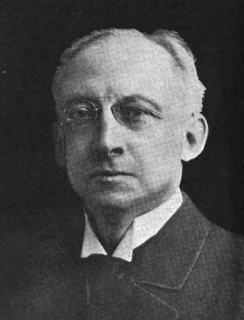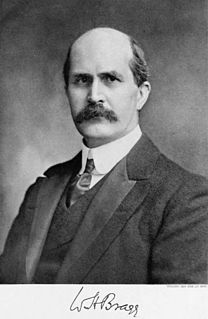A Quote by Nikola Tesla
There is no conflict between the ideal of religion and the ideal of science, but science is opposed to theological dogmas because science is founded on fact. To me, the universe is simply a great machine which never came into being and never will end. The human being is no exception to the natural order. Man, like the universe, is a machine.
Related Quotes
This [the opening of the Vatican City radio station built by Marconi earlier in 1931] was a new demonstration of the harmony between science and religion that each fresh conquest of science ever more luminously confirms, so that one may say that those who speak of the incompatibility of science and religion either make science say that which it never said or make religion say that which it never taught.
The Europeans are all deeply tainted with prejudices, both ecclesiastical and temporal, which they can never get rid of. They are all infected with episcopal and presbyterian creeds, and confessions of faith. They all believe that great Principle which has produced this boundless universe, Newton's universe and Herschell's universe, came down to this little ball, to be spit upon by Jews. And until this awful blasphemy is got rid of, there never will be any liberal science in the world.
Science is like society and trade, in resting at bottom upon a basis of faith. There are some things here, too, that we can not prove, otherwise there would be nothing we can prove. Science is busy with the hither-end of things, not the thither-end. It is a mistake to contrast religion and science in this respect, and to think of religion as taking everything for granted, and science as doing only clean work, and having all the loose ends gathered up and tucked in. We never reach the roots of things in science more than in religion.
This much I can say with definiteness - namely, that there is no scientific basis for the denial of religion - nor is there in my judgment any excuse for a conflict between science and religion, for their fields are entirely different. Men who know very little of science and men who know very little of religion do indeed get to quarreling, and the onlookers imagine that there is a conflict between science and religion, whereas the conflict is only between two different species of ignorance.
Anarchism is in reality the ideal of political and social science, and also the ideal of religion. It is the ideal to which Jesus Christ looked forward. Christ founded no church, established no state, gave practically no laws, organized no government and set up no external authority, but he did seek to write on the hearts of men God's law and make them self-legislating.
Social Science, is not a 'gay science' but rueful, which finds the secret of this universe in 'supply and demand' and reduces the duty of human governors to that of letting men alone. Not a 'gay science', no, a dreary, desolate, and indeed quite abject and distressing one; what we might call, the dismal science
Spiritual fulfillment doesn't have to mean belief in a religion or disbelief in science. ... Whether one believes in an unseen, all-knowing force, or the wonder of science and the universe, or simply the beauty of the human spirit, nearly every one of feels an inner longing to feel part of something bigger than ourselves.
From religion comes a man's purpose; from science, his power to achieve it. Sometimes people ask if religion and science are not opposed to one another. They are: in the sense that the thumb and fingers of my hands are opposed to one another. It is an opposition by means of which anything can be grasped.





































